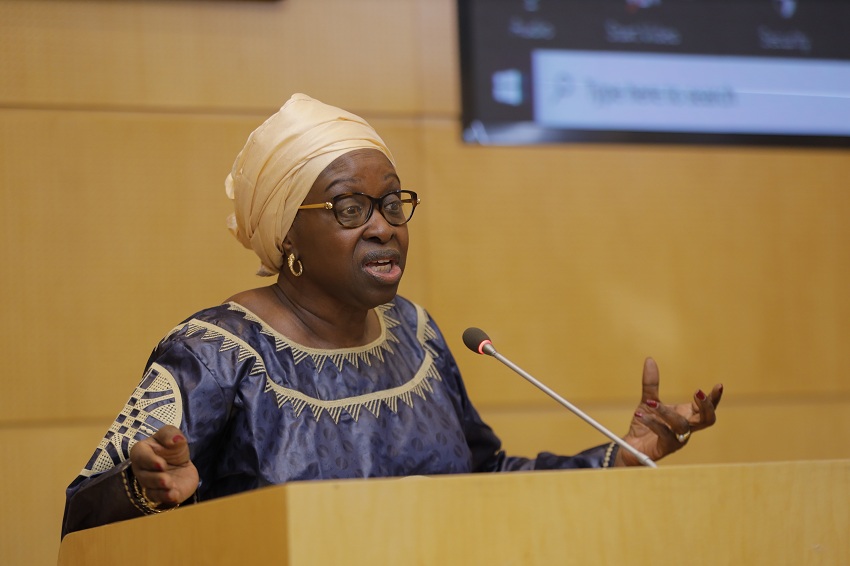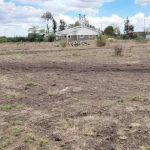A major peace conference has drawn attention to a prevailing tendency where women continue to experience challenges while seeking inclusion in peace initiatives, unlike their male counterparts.
Despite compelling evidence indicating women’s participation accelerates peace building and security initiatives, the meeting was told women are still predominantly excluded from all-important processes.
It is against this backdrop that the office of the African Union Envoy on Women Peace and Security Mme Bineta Diop, recently convened the 4th High Level African Forum on Women, Peace and Security (WSP) in Addis Ababa, Ethiopia.
Speaking during the forum, Diop maintained that women play an immeasurable role in preventing or de-escalating conflict, brokering local ceasefires, promoting cultures of peace and coexistence, and preventing recruitment of children as combatants. She said there is a need to have more women participating in peace processes.
“Statistics show that women are still grossly underrepresented in the peace process. In the Central African Republic national dialogue of 2022, only 17 percent of the 450 participants present were women. In the Democratic Republic of the Congo peace consultations in Nairobi in April 2022, women were glaring absent. Likewise, in the 2022 Chad peace talks in Doha, only one woman was present among the over 50 participants present. In the current Sudan political process, women are glaring absent irrespective of their active role to mobilise for peace,” she said.
While making a case for women in the continent, she, for instance, called on African leaders to put measures in place to ensure successful elections in DRC, where women are included and protected from any form of electoral related violence.

She also urged the leaders to accord the women of Sudan, who are disproportionally affected by the crises and who are championing for peace, a seat in the ongoing efforts of finding a lasting peace in the country. Besides Sudan, she called for lifting of sanctions in Niger, which she said have contributed to the worsening of the situation of women.
The special Envoy called for actions that will deliver transformation in the lives of women.

Addressing the same forum, Awa Ndiaye Seck, Special Representative of the UN Women to the AU and UNECA, urged eradication of the root causes of conflict such as poverty, which she said, expose millions of women and girls to vulnerabilities and violations that continue unabated.
She asked for full commitment of Member States to increase women capacity, including through training and coaching structures, thus enhancing the quality of women’s participation in political processes in conflict regions and fragile contexts.
President of the Federal Democratic Republic of Ethiopia Sahle Zewde-Worke maintained that attaining a lasting peace process is implausible without the inclusion of women. She gave the example of the security situation in the Sahel, the Lake Chad Basin, East Africa, and within Ethiopia itself, where she underscored the urgent need for the inclusion and leadership of women to achieve effective resolutions.
Ellen Johnson Sirleaf, Former President of Liberia and Patron of AWLN, highlighted that a crisis is currently affecting numerous regions globally, and in many instances, global structures and leaders have not adequately met the challenges.
She noted that the ongoing power imbalance observed in the Security Council, along with the use of veto power, has led to the underutilization or increasing disregard for established tools in peace-making, peacebuilding, and peacekeeping. Sirleaf reiterated that women should no longer be in a position of supplication, pleading for inclusion in these crucial processes.
On her part, Catherine Samba-Panza, Former President of the Central African Republic, underscored the importance of solidarity among women’s movements to address socio-political crises and armed conflicts causing destruction and suffering for women and girls. She noted that women in conflict zones in Africa encounter significant challenges but show initiative in reconciliation and reconstruction efforts.
Amid these calls, the African Union reaffirmed its strong commitment to advancing the Women, Peace, and Security Agenda in alignment with United Nations Security Council Resolution 1325 on Women, Peace, and Security.
AU Commission chair Moussa Faki Mahamat said this commitment is demonstrated through decisions made by the Peace and Security Council, the establishment of mechanisms such as the Panel of the Wise with full gender parity, Femwise, the Network of African Women in Conflict Prevention and Mediation, and the AWLN Network, co-established by the Office of the Envoy on Women in Peace and Security, among other initiatives.
In the endeavor to mentor the next generation of women leaders and equip them with practical skills to influence change in shaping the peace and security landscape, Dr. Joyce Hilda Banda, Former President of the Republic of Malawi and Member of the SADC Panel of Elders, expressed profound disappointment at the conspicuous absence of women at peace campaign platforms.
Dr. Banda underscored the imperative for women leaders to persevere in mobilizing and collaborating, urging them to appoint fellow women to positions of leadership.
Encouraging the involvement of women leaders in peacebuilding is becoming more essential. Their participation in peace processes often reflects a broader and more diverse representation, ensuring a democratic inclusion of various perspectives and interests in the pursuit of peace. This is why the WSP meetings launched in 2020 are held annually to review the role and leadership of women in peace and security processes.
Click here to watch the highlights video capturing key statements from the forum.





